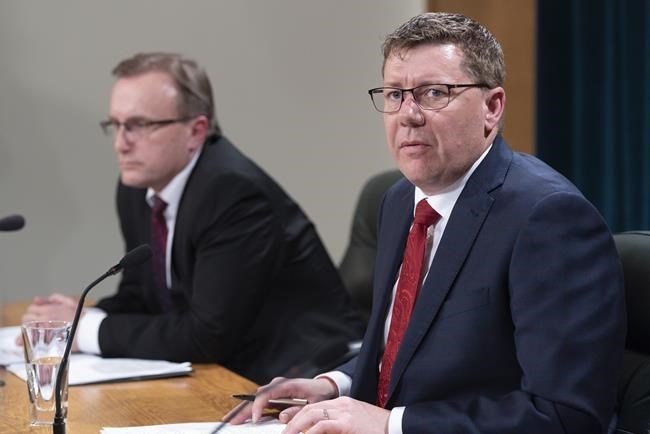Legal experts say the Saskatchewan government may have a case that sacred Indigenous ceremonies be limited in size, but they caution the premier against taking such action.
"Is there reason for Premier Scott Moe to pick this hill to dig in on?" said Ken Norman, emeritus professor of law at the University of Saskatchewan.
Moe criticized Indigenous Services Canada after Minister Marc Miller said sacred ceremonies would be allowed to continue despite restrictions due to COVID-19. Miller suggested that First Nations leadership would decide whether to hold ceremonies and how to do it.
The Federation of Sovereign Indigenous Nations, which represents 74 First Nations in Saskatchewan, asserts that provincial public-health orders do not supersede First Nations laws and treaties.
The premier countered that no one was exempt from provincial public-health orders, including one that limits gatherings to 10 people.
Norman, who specializes in constitutional law and Indigenous rights, said the Indian Act does allow provincial laws generally applied to everyone to be applicable on reserves. While there are some exceptions, Norman said, the provincial health order would be included.
If the government specifically targeted reserves with laws or enforcement, that could easily be challenged, he said.
"Sometimes lines get drawn in the sand and it inevitably ends up in a courtroom somewhere," he said. "I can't see why there can't be common ground."
Last weekend, Saskatchewan RCMP were called to the Beardy's and Okemasis Cree Nation, about 90 kilometres northeast of Saskatoon, where 35 people were taking part in a sun-dance ceremony. Participants say they were physical distancing and having temperatures taken.
Norman said responses should be comparable to risk. He recently watched the Canadian Forces Snowbirds fly over Saskatoon and said there were many people outside along the riverbank. People were distanced from each other, so even though there were more than 10 individuals, there was no need for enforcement of the order.
The province must also consider the constitutional right to ceremony, said Mary Ellen Turpel-Lafond, a renowned Indigenous judge, lawyer and advocate for children.
Ottawa, provinces and First Nations have a shared interest in public safety and protecting people. Turpel-Lafond said it's important to recognize that for many First Nations communities, holding ceremonies brings protection and promotes health.
Many Indigenous leaders across Canada have been able to work with governments to find safe solutions for ceremony during this trying time, she added. The Saskatchewan government, she said, has had a more "conflicted relationship with the First Nations community."
"During a time of a pandemic or a crisis, good relationships between government and First Nations are really the key ingredient of being able to address the needs of the community and have understanding," she said from Vancouver.
There is a treaty obligation for the federal government to support First Nations during times of crisis, and the United Nations Declaration on the Rights of Indigenous Peoples protects ceremonies.
Turpel-Lafond said just because Moe may be able to use provisions in the Indian Act to enforce provincial public-health orders, that doesn't mean he should.
"We have to get through this," she said.
"But we aren't going to get through it by having the province dictate to First Nations the kind of way they should live their life."
This report by The Canadian Press was first published May 16, 2020
Kelly Geraldine Mlaone, The Canadian Press




